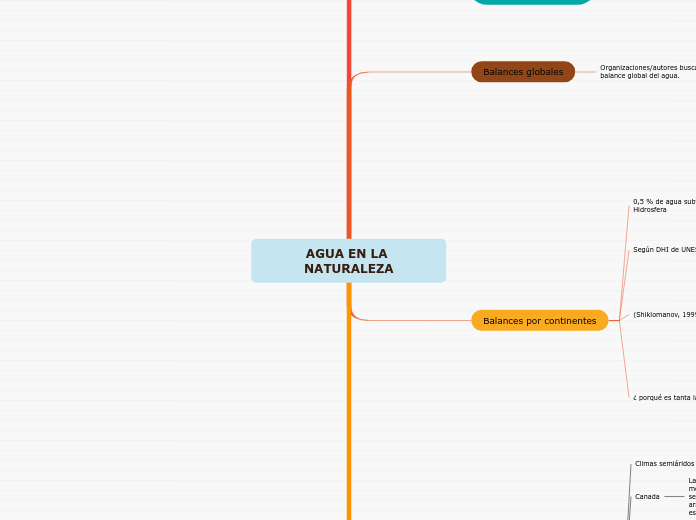作者:Kevin Chan 4 年以前
319
AGUA EN LA NATURALEZA
El ciclo del agua describe la transferencia continua de masas de agua en la naturaleza, impulsada por el flujo energético. Existen dos tipos principales de ciclos: el lento y el rápido.

作者:Kevin Chan 4 年以前
319

更多类似内容

To name your story, you have to think about the overall message and what you want your audience to understand from the story. Also, make it relevant and easy to remember.
Requieren menos tratamientos para su uso.
Tienen parámetros físico-químicos sensiblemente constantes en condiciones normales.
Presentan un elevado nivel de
autoprotección.
El millón de hectáreas regadas con aguas subterráneas, aplicando para ello 5 km3 /año, produce 5 veces que las hectarias regadas con aguas superficiales.
Protege al agua
The ending of a story is essential. We all know that if the ending is weak, what happened before loses its importance. So make it unpredictable, but fair. A resolved ending answers all the questions and ties up any loose threads from the plot.
Dustribuir cantidades ingentes de energía
Termorregulación (masas de aguas)
Soporte de vida
Agente geodinámico
Disolvente universal
Por sus propiedades
Europa 4.24 América Norte 17.4 África 5.72 Asia 3.97 América Sur 38.3 Australia-Oceania 83.6 Mundo 7.65
P(1000 m3 /año)
Ap.Sub. km3/año
The middle of the story is where you add layers of complications that will lead to the end. Reveal more about the character's journey. Did their personality go through changes? How did they overcome the challenges? And as you build up the story’s central conflict, make it more personal to that character. Also, from the middle act, you have to lead into the final act.
Each story has a main character and that character usually needs to solve a problem or challenge. The character's challenge is the one that creates tension throughout the story.
Considerando
Tiempo de Residencia
Def. Tiempo que tarda el agua en evaporarse y regresar al ciclo
Porcentaje agua
2.4 % cuerpos de agua
Rios
Lagos
Humedales
Casquetes polares
Agua subterranea
97.8 agua oceanos
Altura
Volumen
Área
Organizaciones
Korzoun/ colaboradores (1980)
Nace/ Lvovith (in Lamas, 19976(
UNESCO (1999)
In the beginning of the story (or the exposition), you will need to introduce the setting and characters. You might also want to introduce the main conflict. This part of the story is important because it gives the reader necessary background information and maybe even a first insight into a character’s personality.
Movimiento o transferencia de masas de agua, como consecuencia de un flujo energético, de forma continua
The setting (time & place) of a story can change throughout the plot.
The time of the story can also change. It can describe the event of a single day or can include an entire year's plot. Anyway, don't forget to mention it.
precipitación → infiltración → circulación en el manto acuífero (muy lenta) → manantial → río→ mar → evaporación → precipitación
Your story can take place wherever your imagination will take you to.
For example: in an elevator, in an enchanted forest, etc. Don't forget to give details of the environment each time the setting changes, otherwise, the story can be confusing. Also, mention the seasons as each of them has unique weather and events.
Precipitación → escorrentía superficial → río → mar → evaporación → precipitación
Characters are essential to a good story. Usually, the protagonist(s) is/are the most affected by the plot. Introduce a character by focusing on their actions, interests, and occupation, as the physical appearance doesn't make a difference in most cases.
Parte de la precipitación que infiltra en el terreno, en los poros y fisuras
Transpiración
Uso en las actividades biológicas de los seres vivos
Escorrentía superficial
Irá a parar al mar o a los lagos
Retenido en las irregularidades del terreno
Escorrentía cordical
What is your character's main goal?
Alcanza el suelo por las ramas y tronco
Transcolación
Which traits best describe the character's personality? Choose more if necessary:
directamente
Hojas, carreteras, edificios
Parte de la precipitación que no llega a la superficie
Subtopic
Type in the name of your character.
Sólida (nieve)
Add other properties of the character.
Líquida (lluvia)
Choose the type of your chacter: